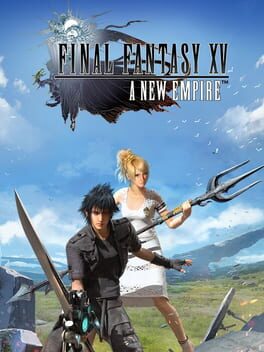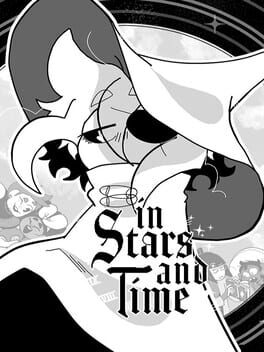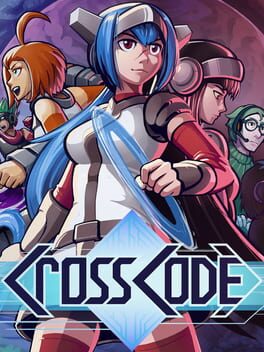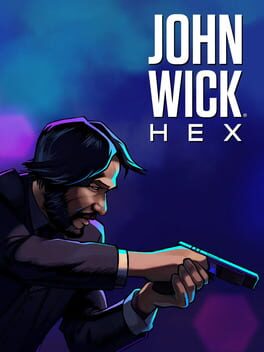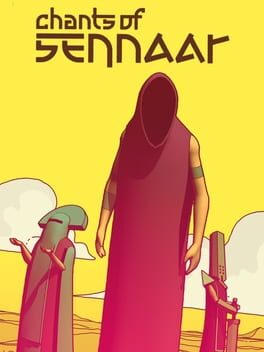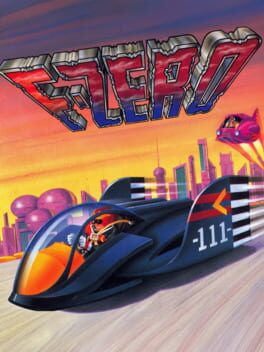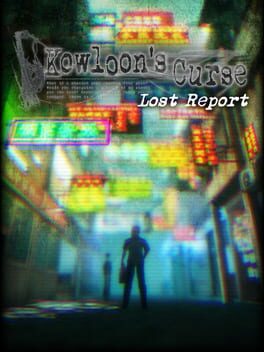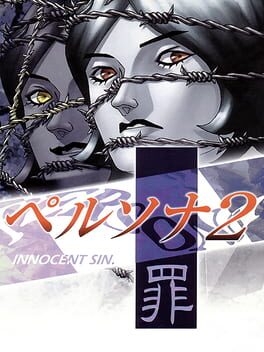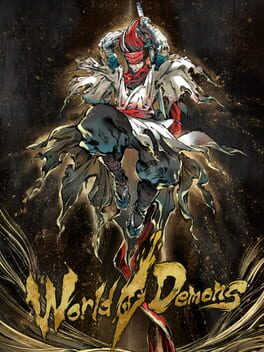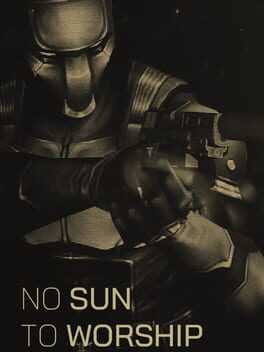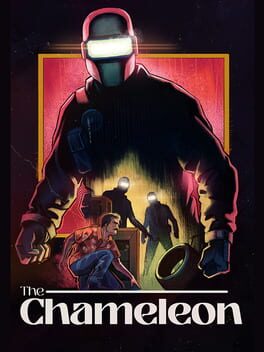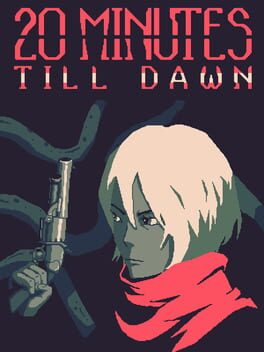mospina
161 Reviews liked by mospina
BioShock Infinite
2013
There are two schools of thought to criticising Bioshock Infinite. The first is "Uhm, actually, if you think about it, the story really doesnt make sense, look at this plothole, and how does that even work, and..." to which my response is Shut up Nerd, before I stuff you in a locker.
The second one is "Bioshock Infinite kinda frames the violence of a slave revolution as equally bad as the violence of slave oppresion, essentially 'both sides'-ing slavery." to which... I have absolutely no response. It does do that. Infinite swings for 'Cyclical nature of violence, oppression breeds revenge' and really just misses that particular baseball. Infinite's politics are somewhere between problematic and offensive, and I can understand anyone discarding or hating it based on that.
Nevertheless I cannot shake the grasp Infinite has on me, from the first time I played it back in 2013 to every replay since. Booker and Elizabeth are incredible characters. Audiovisually the game is a gift. The impact that ending had the first time I saw it cannot be understated, I remember sitting in front of the TV motionless for the whole credits, thinking the events over.
At this point I cant tell if it is teenage nostalgia or actual quality, but Bioshock Infinite will always be my problematic fav, and everytime I replay it, I am back under its spell.
The second one is "Bioshock Infinite kinda frames the violence of a slave revolution as equally bad as the violence of slave oppresion, essentially 'both sides'-ing slavery." to which... I have absolutely no response. It does do that. Infinite swings for 'Cyclical nature of violence, oppression breeds revenge' and really just misses that particular baseball. Infinite's politics are somewhere between problematic and offensive, and I can understand anyone discarding or hating it based on that.
Nevertheless I cannot shake the grasp Infinite has on me, from the first time I played it back in 2013 to every replay since. Booker and Elizabeth are incredible characters. Audiovisually the game is a gift. The impact that ending had the first time I saw it cannot be understated, I remember sitting in front of the TV motionless for the whole credits, thinking the events over.
At this point I cant tell if it is teenage nostalgia or actual quality, but Bioshock Infinite will always be my problematic fav, and everytime I replay it, I am back under its spell.
In Stars and Time
2023
Takes a while to get going, maybe even too long.
But once it has gotten going it really just doesn't stop.
It's a bit difficult to talk about without spoiling anything (and I don't wanna write a spoiler tagged review either because I don't feel like I actually have that much to say about it) but this game hit me really hard at an emotional spot that I have been incredibly vulnerable at for the past year or so.
And then the ending was just incredibly carthatic.
Of course, a game hitting me this close to something so personal to me, while making it a game I deeply care about, also makes it a bit more tricky to recommend. What if other people feel differently about this?
But also I feel like even though the game feels incredibly personal to me, it is actually about a fairly universal feeling. Now that I think about it, that might actually be what the game is about.
But once it has gotten going it really just doesn't stop.
It's a bit difficult to talk about without spoiling anything (and I don't wanna write a spoiler tagged review either because I don't feel like I actually have that much to say about it) but this game hit me really hard at an emotional spot that I have been incredibly vulnerable at for the past year or so.
And then the ending was just incredibly carthatic.
Of course, a game hitting me this close to something so personal to me, while making it a game I deeply care about, also makes it a bit more tricky to recommend. What if other people feel differently about this?
But also I feel like even though the game feels incredibly personal to me, it is actually about a fairly universal feeling. Now that I think about it, that might actually be what the game is about.
CrossCode
2018
John Wick Hex
2019
Chants of Sennaar
2023
Chants of Sennaar, Case of the Golden Idol, and Return of the Obra Dinn have built a little mini-genre for themselves here. We should come up with a name for it.
Out of those three Chants of Sennaar has the highest frustration potential, some of the puzzles are a bit obscure and having to guess what the drawings in your notebook are supposed to depict is harder than the actual puzzle of mapping words to actions.
It does however also have the strongest narrative, a heartfelt pledge for reaching out across communities and building a better future together
Out of those three Chants of Sennaar has the highest frustration potential, some of the puzzles are a bit obscure and having to guess what the drawings in your notebook are supposed to depict is harder than the actual puzzle of mapping words to actions.
It does however also have the strongest narrative, a heartfelt pledge for reaching out across communities and building a better future together
Final Fantasy X
2001
This review contains spoilers
Final Fantasy X opens with Tidus telling you that this is his story. But is it?
If you watched the story unfold from an outside perspective, or even read a basic summary, it probably wouldn’t seem so. Yuna is the one going on a pilgrimage to defeat Sin, Tidus is just along for the ride.
Of course, there are more characters than just Tidus and Yuna. Each of the seven party members has a story that gets told over the course of the game. Seven (technically eight if you count that one time you control Seymour) is on the lower end of the spectrum of party members for a Final Fantasy game, but this more focused cast allows each of the members to actually shine. Except maybe Lulu, I would have loved some more Lulu content.
The gameplay also supports this. Unlike the PS1 games with their clear protagonists you always need to have in your party, X lets you use any 3 out of 7 party members, similar to VI which doesn’t have a clearly defined protagonist.
Yet the notion that Tidus might not be the main character seems absurd to me. Not just because he’s the 3D model walking around the map, but also because the story begins and ends with his time in Spira and because throughout most of the story, we can hear his thoughts about what is currently going on.
I already mentioned that I enjoy the individual characters’ stories, but the overarching story is also great. Probably the most anti-authoritarian Final Fantasy story yet?
The world itself is also amazing. It has the traditional FF mix of Fantasy and Scifi, leaning a bit more towards the Fantasy again this time, but unlike usually it’s not medieval European fantasy, which makes it really stand out.
My only issue with the story is Seymour. There’s not even anything really wrong with him, he just feels so, I don’t know, underutilized? Here narratively matters for the section between Guadosalam and the Calm Lands but even then, he’s more of a secondary thing to the main plot and then after that you still fight him two more times but outside of the actual fights themselves, he wasn’t really on my mind.
There’s also a bit more to him when you do Baaj temple but since we’re only ever told about him being discriminated against for being half Guado half human and never actually shown any kind of racial discrimination other than anti Al Bhed discrimination (which also has a very significant religious factor so I’m not sure if it even counts) that also fell a bit flat for me.
The combat starts out amazing and stays that way for a long time. ATB is finally gone so combat can feel smooth again and the change to the turn order makes things even more smooth and opens up new tactical possibilities. Every character has a clear purpose and figuring out strategies for each enemy is fun. The addition of Sensor as a weapon ability is also great, allowing for more insights into the enemy which encourages tactical fighting.
Unfortunately, in the lategame, this kind of breaks down. At a certain point of strength, most characters just become generically useful. When every encounter can be solved by Lulu doublecasting Ultima or Auron hitting something for 15 thousand damage, I don’t really need to bother with strategy anymore. And a lot of enemies are even immune to Sensor and Scan! It’s like the game is explicitly telling you “Don’t worry about strategy, just become really powerful”.
The Aeons past Shiva are kind of a microcosm of this. Valefor, Ifrit, Ixion, and Shiva all have their strengths and weaknesses but Bahamut, Anima, Yojimbo, and the Magus Sisters are all just generically powerful. You could basically summon the Magus Sisters for every lategame encounter and you’d be fine.
Yojimbo is kind of interesting because he makes “you can beat any encounter by just grinding enough” even more literal. Just give him enough money, kill anything, then grind the money back.
Because of this and for pacing reasons, I eventually gave up on doing the endgame stuff like the Superbosses. Some of the minigames needed for celestial weapons are also pretty awful.
Another big issue I have with endgame content is how much of it basically requires a guide. The worst example of this is probably Baaj temple, which requires you to have solved all the destruction spheres which are sometimes really obscure and if you didn’t bother with them when you initially encountered them like I did, you might have to fight some Superbosses now if you want to try again. At least you can just give Yojimbo a bunch of gil to deal with this.
The underwhelming endgame content wasn’t enough to make me dislike the game towards the end though. The final dungeon is great, the ending is amazing, and I love this game. Just don’t bother with optional endgame content and you’ll be fine.
Last but not least I must of course mention the music. It’s obviously great as usual. This is the first soundtrack not composed entirely by Uematsu and it’s great to have some more variety, especially tracks like Otherworld.
If you watched the story unfold from an outside perspective, or even read a basic summary, it probably wouldn’t seem so. Yuna is the one going on a pilgrimage to defeat Sin, Tidus is just along for the ride.
Of course, there are more characters than just Tidus and Yuna. Each of the seven party members has a story that gets told over the course of the game. Seven (technically eight if you count that one time you control Seymour) is on the lower end of the spectrum of party members for a Final Fantasy game, but this more focused cast allows each of the members to actually shine. Except maybe Lulu, I would have loved some more Lulu content.
The gameplay also supports this. Unlike the PS1 games with their clear protagonists you always need to have in your party, X lets you use any 3 out of 7 party members, similar to VI which doesn’t have a clearly defined protagonist.
Yet the notion that Tidus might not be the main character seems absurd to me. Not just because he’s the 3D model walking around the map, but also because the story begins and ends with his time in Spira and because throughout most of the story, we can hear his thoughts about what is currently going on.
I already mentioned that I enjoy the individual characters’ stories, but the overarching story is also great. Probably the most anti-authoritarian Final Fantasy story yet?
The world itself is also amazing. It has the traditional FF mix of Fantasy and Scifi, leaning a bit more towards the Fantasy again this time, but unlike usually it’s not medieval European fantasy, which makes it really stand out.
My only issue with the story is Seymour. There’s not even anything really wrong with him, he just feels so, I don’t know, underutilized? Here narratively matters for the section between Guadosalam and the Calm Lands but even then, he’s more of a secondary thing to the main plot and then after that you still fight him two more times but outside of the actual fights themselves, he wasn’t really on my mind.
There’s also a bit more to him when you do Baaj temple but since we’re only ever told about him being discriminated against for being half Guado half human and never actually shown any kind of racial discrimination other than anti Al Bhed discrimination (which also has a very significant religious factor so I’m not sure if it even counts) that also fell a bit flat for me.
The combat starts out amazing and stays that way for a long time. ATB is finally gone so combat can feel smooth again and the change to the turn order makes things even more smooth and opens up new tactical possibilities. Every character has a clear purpose and figuring out strategies for each enemy is fun. The addition of Sensor as a weapon ability is also great, allowing for more insights into the enemy which encourages tactical fighting.
Unfortunately, in the lategame, this kind of breaks down. At a certain point of strength, most characters just become generically useful. When every encounter can be solved by Lulu doublecasting Ultima or Auron hitting something for 15 thousand damage, I don’t really need to bother with strategy anymore. And a lot of enemies are even immune to Sensor and Scan! It’s like the game is explicitly telling you “Don’t worry about strategy, just become really powerful”.
The Aeons past Shiva are kind of a microcosm of this. Valefor, Ifrit, Ixion, and Shiva all have their strengths and weaknesses but Bahamut, Anima, Yojimbo, and the Magus Sisters are all just generically powerful. You could basically summon the Magus Sisters for every lategame encounter and you’d be fine.
Yojimbo is kind of interesting because he makes “you can beat any encounter by just grinding enough” even more literal. Just give him enough money, kill anything, then grind the money back.
Because of this and for pacing reasons, I eventually gave up on doing the endgame stuff like the Superbosses. Some of the minigames needed for celestial weapons are also pretty awful.
Another big issue I have with endgame content is how much of it basically requires a guide. The worst example of this is probably Baaj temple, which requires you to have solved all the destruction spheres which are sometimes really obscure and if you didn’t bother with them when you initially encountered them like I did, you might have to fight some Superbosses now if you want to try again. At least you can just give Yojimbo a bunch of gil to deal with this.
The underwhelming endgame content wasn’t enough to make me dislike the game towards the end though. The final dungeon is great, the ending is amazing, and I love this game. Just don’t bother with optional endgame content and you’ll be fine.
Last but not least I must of course mention the music. It’s obviously great as usual. This is the first soundtrack not composed entirely by Uematsu and it’s great to have some more variety, especially tracks like Otherworld.
F-Zero
1990
The game starts hard as fuck with a sick cutscene montage, some genuinly impressive in game world TV advertisements, and a well written dark parody image board.
That set my expectations high: Crass but pointed writing, packed in wildly unpredicable aesthetics.
Unfortunately, we never hit those highs again. While I vibe with the visuals a lot (very Umurangi Generations), we never really get any closer to meaning than "Things are absurd and vaguely fucked up" for the rest of this Prologue. The Turn-based combat is very basic and never challenging. Exploration is hindered by the movement system - I am all for novel choices if there is a strong intent behind them, but I dont see what moving in tile based dungeoncrawler style is adding to the game, apart from annoying you.
Special shoutout to Sergio, your sidekick, one of the most hateable characters I have ever seen in a video game. What an absolute asshole, thank god he s dead.
Despite everything I am still interested in checking out the finished game, the vibes are undeniable and there are some occasional pearls in here (standout was the guy writing his name on a Home invasion thread, to then ask you to please not kill him, he just wanted to hang out with someone, look, he even bought snacks), but as a stand alone game it s not very strong
That set my expectations high: Crass but pointed writing, packed in wildly unpredicable aesthetics.
Unfortunately, we never hit those highs again. While I vibe with the visuals a lot (very Umurangi Generations), we never really get any closer to meaning than "Things are absurd and vaguely fucked up" for the rest of this Prologue. The Turn-based combat is very basic and never challenging. Exploration is hindered by the movement system - I am all for novel choices if there is a strong intent behind them, but I dont see what moving in tile based dungeoncrawler style is adding to the game, apart from annoying you.
Special shoutout to Sergio, your sidekick, one of the most hateable characters I have ever seen in a video game. What an absolute asshole, thank god he s dead.
Despite everything I am still interested in checking out the finished game, the vibes are undeniable and there are some occasional pearls in here (standout was the guy writing his name on a Home invasion thread, to then ask you to please not kill him, he just wanted to hang out with someone, look, he even bought snacks), but as a stand alone game it s not very strong
URGENT: For the love of god, play the PS1 original, not the PSP version. I have deleted the log that I originally posted here and am re-posting this now in hopes of getting eyes on this and counterbalancing any misunderstanding that it may have propagated. As it turns out, the entire crux of my disappointment with Innocent Sin is the PSP version's doing.
On PSP, REGARDLESS of difficulty selection, Innocent Sin's gameplay is a desert one must cross to reach the oases of its wonderful story. On PS1, Innocent Sin's battles are NOT exclusively a waste of your time! It's NOT a small difference! It turns out that the auto-battle system used to NOT SUCK, and there used to be some modicum of ACTUAL TENSION in some of the fights!!! I honestly feel cheated by having the PSP version taint my first experience! The PS1 version is as good as the PSP version of Eternal Punishment, maybe even better!
It's not a simple matter of being "too easy." The PSP version of Innocent Sin traps you in a position where the encounter rate is disruptively high and then presents you with two options for achieving the forgone conclusion of your victory in any of these encounters:
Option 1: Navigate the menus for each character every turn and tell them each to do the obviously optimal thing every turn with no interesting variations because the only thing enemies can do in their own defense is annoy you but they have too much health to courteously die in a timely fashion,
or Option 2: Press Triangle and sit patiently while the game resolves the encounter on its own in the slowest, most painful way possible, including all of the bosses, with pretty much complete, unquestionable safety.
On the PS1, the game is DESIGNED around a WAY better auto-battle system, and things can actually hurt you, so you have to pay attention! Even if the fights aren't much more interesting on PS1, they fly by so much faster that it's hard to complain about them. It's still by no means difficult, but it at least provides Final Fantasy levels of combat engagement now! In fact, the game clicks into place in almost the exact same ways that a PS1 Final Fantasy game does, as a breezy trip through a meticulously told and thematically resonant story, with gameplay that doesn't turn any heads, but doesn't get in the way of a good time either.
It feels at least slightly insane to bump Innocent Sin from the lowly score it had all the way up to this, but everything wrong with it is in its gameplay mechanics, and on PS1 almost everything I held against the PSP version is a non-issue. It still doesn't sit right with me that the easiest path through the game means never even setting foot in the Velvet Room, and having to grind out demon negotiations if you choose to use it sucks, but compared to my previous problems of constant, meaningless, tedious encounters, that's practically nothing.
Am I willing to give it the full-on five star treatment? Not quite. The design is still too shaky for that. Aside from the Velvet Room thing, money and SP still grow on trees in a way that makes dungeoneering and shopping even less interesting than it is in, say, Final Fantasy VII, and something like materia is enough to blow this implementation of the Velvet Room out of the water.
The question is, will Eternal Punishment bring enough tension back into the battles to overpower those other flaws and win my full marks?
EDIT... again:
The balance is fine. I'm nearing the end of my replay on PS1 now, and I've totally come around on the battle system and its balance. The gap between PS1 Innocent Sin and PSP Eternal Punishment is small, and there's no need for Eternal Punishment to "fix" it. I have however decided that yeah, I do have to dock a bit for pacing reasons. The beginning of the game absolutely knocks it out of the park, but the middle drags. It really does start wearing you down when Lisa's spotlight arc plays out across three of the blander dungeons with only brief glimpses of story in between them. The mundane setting plays a hand in this, because while it may be interesting to see a game turn an exercise gym into a dungeon, it ends up being the fifth or sixth "normal building" dungeon the player has navigated in a row. On top of this... like, the air raid shelter just sorta sucks, dude. Not letting you save before you fight King Leo after you just did a whole dungeon and a bunch of cutscenes? Also sucks. I think there are enough low points here to hold this back from really trading blows with something like Final Fantasy VII or even IX. I guess this really IS an alternate universe Final Fantasy VIII...
Edit AGAIN:
So at the end of this journey, of my many initial criticisms, the following still stand:
-The third or so of the game after the first two hours drags.
-Minor setpiece groaning about King Leo and Air Raid shelter.
-Negotiation sucks and isn't fun to grind so Velvet Room rots.
-For MOST of the game SP is a non-factor (not endgame).
That's... not a long list, and the impact of everything on it isn't really much bigger than say, the overbloated animations and trance system failures of FFIX, another game that I've recently decided I can't deny a spot in the five-star club. The honest truth is that Innocent Sin is so cosmically far ahead of its time in terms of writing that it should take a lot more than that petty list of grievances to lower its standing.
On PSP, REGARDLESS of difficulty selection, Innocent Sin's gameplay is a desert one must cross to reach the oases of its wonderful story. On PS1, Innocent Sin's battles are NOT exclusively a waste of your time! It's NOT a small difference! It turns out that the auto-battle system used to NOT SUCK, and there used to be some modicum of ACTUAL TENSION in some of the fights!!! I honestly feel cheated by having the PSP version taint my first experience! The PS1 version is as good as the PSP version of Eternal Punishment, maybe even better!
It's not a simple matter of being "too easy." The PSP version of Innocent Sin traps you in a position where the encounter rate is disruptively high and then presents you with two options for achieving the forgone conclusion of your victory in any of these encounters:
Option 1: Navigate the menus for each character every turn and tell them each to do the obviously optimal thing every turn with no interesting variations because the only thing enemies can do in their own defense is annoy you but they have too much health to courteously die in a timely fashion,
or Option 2: Press Triangle and sit patiently while the game resolves the encounter on its own in the slowest, most painful way possible, including all of the bosses, with pretty much complete, unquestionable safety.
On the PS1, the game is DESIGNED around a WAY better auto-battle system, and things can actually hurt you, so you have to pay attention! Even if the fights aren't much more interesting on PS1, they fly by so much faster that it's hard to complain about them. It's still by no means difficult, but it at least provides Final Fantasy levels of combat engagement now! In fact, the game clicks into place in almost the exact same ways that a PS1 Final Fantasy game does, as a breezy trip through a meticulously told and thematically resonant story, with gameplay that doesn't turn any heads, but doesn't get in the way of a good time either.
It feels at least slightly insane to bump Innocent Sin from the lowly score it had all the way up to this, but everything wrong with it is in its gameplay mechanics, and on PS1 almost everything I held against the PSP version is a non-issue. It still doesn't sit right with me that the easiest path through the game means never even setting foot in the Velvet Room, and having to grind out demon negotiations if you choose to use it sucks, but compared to my previous problems of constant, meaningless, tedious encounters, that's practically nothing.
Am I willing to give it the full-on five star treatment? Not quite. The design is still too shaky for that. Aside from the Velvet Room thing, money and SP still grow on trees in a way that makes dungeoneering and shopping even less interesting than it is in, say, Final Fantasy VII, and something like materia is enough to blow this implementation of the Velvet Room out of the water.
The question is, will Eternal Punishment bring enough tension back into the battles to overpower those other flaws and win my full marks?
EDIT... again:
The balance is fine. I'm nearing the end of my replay on PS1 now, and I've totally come around on the battle system and its balance. The gap between PS1 Innocent Sin and PSP Eternal Punishment is small, and there's no need for Eternal Punishment to "fix" it. I have however decided that yeah, I do have to dock a bit for pacing reasons. The beginning of the game absolutely knocks it out of the park, but the middle drags. It really does start wearing you down when Lisa's spotlight arc plays out across three of the blander dungeons with only brief glimpses of story in between them. The mundane setting plays a hand in this, because while it may be interesting to see a game turn an exercise gym into a dungeon, it ends up being the fifth or sixth "normal building" dungeon the player has navigated in a row. On top of this... like, the air raid shelter just sorta sucks, dude. Not letting you save before you fight King Leo after you just did a whole dungeon and a bunch of cutscenes? Also sucks. I think there are enough low points here to hold this back from really trading blows with something like Final Fantasy VII or even IX. I guess this really IS an alternate universe Final Fantasy VIII...
Edit AGAIN:
So at the end of this journey, of my many initial criticisms, the following still stand:
-The third or so of the game after the first two hours drags.
-Minor setpiece groaning about King Leo and Air Raid shelter.
-Negotiation sucks and isn't fun to grind so Velvet Room rots.
-For MOST of the game SP is a non-factor (not endgame).
That's... not a long list, and the impact of everything on it isn't really much bigger than say, the overbloated animations and trance system failures of FFIX, another game that I've recently decided I can't deny a spot in the five-star club. The honest truth is that Innocent Sin is so cosmically far ahead of its time in terms of writing that it should take a lot more than that petty list of grievances to lower its standing.
World of Demons
2021
At time of writing, World of Demons gets delisted from Apple Arcade tomorrow, January 18th, 2024. In February, it will be taken offline and be lost to time, like so many of today's games. In the case of World of Demons, this is no enormous tragedy, though it certainly is a perplexing end to an odd tale.
This was, quite obviously, meant to be a barebones freemium mobile game wherein the player would repeatedly farm upgrade materials from hyper-linear levels that are really nothing more than three or four battle nodes strung together in a line. You'd think that when the game was redesigned "from the ground up" this stuff would have been taken out, alas, the grind still seems to be here. The most important thing though is whether the grind is enjoyable. As far as these things go, World of Demons is alright. It looks great, runs well, it definitely has better action than Okami, and it at least tries to tuck a few secrets into its corners. I've had a nice time with it. I'm a particularly big fan of the yokai designs on display. It's a shame that the veneer of a fully polished Platinum character action game can't hold up for long. It's only a matter of time before the player figures out how bad the lock-on is, and things start going down from there.
Is World of Demons something that you should frantically scramble to play before it disappears? No, not really. It's kind of neat to look at though, and it does at least mostly FEEL like a Platinum game, even if it also feels like it was made as a training exercise for the junior crew, and even if it feels totally compromised by its very nature.
This was, quite obviously, meant to be a barebones freemium mobile game wherein the player would repeatedly farm upgrade materials from hyper-linear levels that are really nothing more than three or four battle nodes strung together in a line. You'd think that when the game was redesigned "from the ground up" this stuff would have been taken out, alas, the grind still seems to be here. The most important thing though is whether the grind is enjoyable. As far as these things go, World of Demons is alright. It looks great, runs well, it definitely has better action than Okami, and it at least tries to tuck a few secrets into its corners. I've had a nice time with it. I'm a particularly big fan of the yokai designs on display. It's a shame that the veneer of a fully polished Platinum character action game can't hold up for long. It's only a matter of time before the player figures out how bad the lock-on is, and things start going down from there.
Is World of Demons something that you should frantically scramble to play before it disappears? No, not really. It's kind of neat to look at though, and it does at least mostly FEEL like a Platinum game, even if it also feels like it was made as a training exercise for the junior crew, and even if it feels totally compromised by its very nature.
No Sun To Worship
2023
Why did we, as a society, ever stop making these games? Stealth action a la Metal Gear and Splinter Cell. No Sun To Worship is pretty short, and the cracks start showing towards the end (enemy AI is very abusable), but I still loved every minute of it, because I long to crawl through air vents, to hold up guards, to be the ghost haunting a dense, dark maze full of bad guys and worse guys.
We need to bring these games back
We need to bring these games back
The Chameleon
2021
Having just played the (very good) 'No Sun To Worship' I went back through Antonio Freyre's catalogue and gave The Chameleon a try. In comparison, The Chameleon is significantly less polished and more janky - Controls arent always responsive. AI frequently bugs out or keeps chasing you after you respawned, and I got stuck in collision a few times.
None of that is my main issue with the game. My main problem with The Chameleon is its energy system and the fact that, suprisingly, The Chameleon is not entirely a stealth game? It certainly starts out as one, at the beginning your toolset is quite limited apart from a single one shot melee attack that consumes all of your energy, but the more powers you collect, the more it turns from stealth game into super natural power fantasy.
The problem is: All your abilities consume energy. Stealth kills consume 100% of your energy. If your energy is conpletely empty, it takes 5+ excruciating seconds before your energy even starts to recharge. This is clearly set up to disincentivice using the stealth kill, however, it is way too impactful for that.
What happens instead is a lot of sitting around, not moving, not using any of your cool skills, just waiting for your energy to recharge, because you dared a stealth kill. Really screwed with the pacing of the game, and made me never find my rhythm in an otherwise decent game
None of that is my main issue with the game. My main problem with The Chameleon is its energy system and the fact that, suprisingly, The Chameleon is not entirely a stealth game? It certainly starts out as one, at the beginning your toolset is quite limited apart from a single one shot melee attack that consumes all of your energy, but the more powers you collect, the more it turns from stealth game into super natural power fantasy.
The problem is: All your abilities consume energy. Stealth kills consume 100% of your energy. If your energy is conpletely empty, it takes 5+ excruciating seconds before your energy even starts to recharge. This is clearly set up to disincentivice using the stealth kill, however, it is way too impactful for that.
What happens instead is a lot of sitting around, not moving, not using any of your cool skills, just waiting for your energy to recharge, because you dared a stealth kill. Really screwed with the pacing of the game, and made me never find my rhythm in an otherwise decent game
20 Minutes Till Dawn
2022
The aesthetics are excellent. Other than that, I struggle finding anything to say about it, either positive or negative. It kinda just feels like Holocure but slightly different, aside frome the radically different aesthetics.
If I hadn't played Holocure before playing this I'd probably feel radically different but as it is, I don't see myself coming back to this anytime soon, I rarely play Holocure already.
If I hadn't played Holocure before playing this I'd probably feel radically different but as it is, I don't see myself coming back to this anytime soon, I rarely play Holocure already.
This review contains spoilers
“The Dragon Engine at this point is kind of a bit of an old engine. We have made a lot of minor updates over the years for it, or we've made a lot of minor updates over it, but we haven't made any major updates. So probably next what's coming for would be a major update if we had to do anything,” Yokoyama says.
...
“So, regarding [Unreal Engine 5], yes, we are researching it,” Yokoyama said in response to a question asked by IGN during a roundtable interview. “We are kind of looking at it and saying, what are the merits of each? What's the merit of the Dragon Engine? What's the merit of the Unreal Engine? And when it comes down to it, the Dragon Engine…it's really perfectly designed to represent a city at night. The nighttime city. Whereas Unreal, it's better at showing nature and daytime and that sort of feel.”
- Masayoshi Yokoyama, September 14, 2022
it shouldn't come as a surprise that RGG studio might be considering some evolution of their proprietary engine following the release of infinite wealth. key figures from the studio have spoken at length about the technical difficulties and production challenges associated with the engine, and unreal engine has the obvious benefit of practicality that a proprietary engine does not, with vast swathes of community resources to tap into during production.
of course the question is whether or not this proposed engine change will constitute a productive shift for the studio - certainly, epic's growing engine monopolization raises some concerns, and the ishin remake, itself an attempt to learn the processes of unreal, ultimately looks flat, lacking in warmth. likewise, it can't be understated just how well-optimized the dragon engine is in contrast to something like unreal engine 5.
it's worth noting that we are now seven years into a dragon engine-led era, ironically introduced by the game which initially purported to be kazuma kiryu's swan song: yakuza 6, one of the franchise's most polarizing entries. setting aside thoughts on its narrative, one of yakuza 6's chief issues is how spotty it is. while it's capable of rendering some gorgeous environments - the quaint countryside of hiroshima is still pound for pound my favourite locale in the series - it's also marred by poor in-engine presentation, a stilted combat system, frictional rpg systems, and disarming balancing.
i don't think it's a coincidence that the first entries in this series to eschew the traditional inventory limitations on healing items are also the first ones to have this many issues with its combat, with mechanics that are more suggestive than they are clearly defined. and it's not just yakuza 6 either, even if that game does reflect the nadir of these complications; several quirks and blemishes are instead intrinsic to almost all the dragon engine games and never really get fixed. there's still no consistent and meaningful way to shatter enemies' guards. enemies still recover very quickly and will often break their animations or shrug off further attacks to do so. enemies will have unblockable grapples that are terribly telegraphed. heat systems sometimes feel like an afterthought, or an excuse to rapidly pile on damage moreso than to facilitate interesting decision-making. if the general intent of the combat of this era is to evoke a film set - a sandbox and space for opportunity allowing for high octane action and gruesome applications of the environment - then these titles fall short compared to even yakuza 5, which has a colossal list of heat actions and arenas cluttered with miscellaneous knickknacks allowing for quick experimentation, dwarfing almost anything else in the dragon engine games.
the list goes on. as a whole, the combat of the dragon engine games behaves far less consistently than the 2005 - 2015 RGG era (also marked by drawbacks, albeit for different reasons), which can often be a really frustrating element of the newer games to deal with. the judgment subseries fares a bit better in this respect, but is still shackled to many of the same key concerns.
however, yakuza 6 - and the dragon engine in turn - does incorporate several features that i think would be difficult to discount, since these titles aren't strictly combat showcases. as adventure games, they've really started coming into their own. dragon engine titles generally have a faster gameplay loop, seamlessly transitioning into and out of battle with ease. this extends to arcades, shops, and most interiors within the game. the explosiveness of the combat works to its favour a lot of the time - it's hard not to crack a wry smile at any of the insane ragdoll shenanigans unfolding on screen. long battles and scenarios are oftentimes more unique than anything in preceding entries - the various infiltration scenarios in 6 come to mind, as well as the battle on the cargo island. and of course, the presentation of these titles reached an apex with the dragon engine games - a necessary virtue in a series with a reputation for lengthy cutscenes.
it's that level of production which gaiden has really electrified - this is without a doubt the best looking game in the series. the team has gotten ridiculously good at exploring what can be accomplished during in-engine scenes. where yakuza 6 was rife with expository scenes of characters blankly emoting and talking to each other, gaiden instead enriches its canvas with various techniques - action choreography, bespoke animations, and some truly stunning lighting from time to time. it really breathes a lot of life into exactly how this series chooses to disseminate its narrative - if any of this is possible owing to its pared back approach, then please, by all means, rgg studio, i would love to see more gaiden titles.
the title's combat chooses to evolve the lineage from yakuza 6 and kiwami 2 while largely ignoring the judgment subseries. this makes gaiden more of a lateral move than a strict improvement, and makes for a bit of an awkward approach when contrasted against the highs lost judgment managed to reach. credit where credit is due, the yakuza style is the strongest implementation of this specific combat system yet, and the agent style, while unwieldy, earns points for being one of the most idiosyncratic styles in the series yet. they remembered having a combat theme with grungy vocals is kind of essential to kiryu's whole deal, can't be mad at them.
gaiden's chief draw is really its narrative. ultimately, the smartest thing about gaiden is that it really is not a retroactive apology for y6 the way so many - myself included - suspected it would be. gaiden instead leaves the status quo intact from 6 and is content to simply wrestle with the consequences of kiryu's actions. to that end, the game is much less of a character study than is currently advertised, but this really works in its favour. we already know that kiryu is impulsive and strictly bound to unaccommodating codes of honour; these traits almost get him summarily executed in a clandestine, dingy room far away from his loved ones. we already know that kiryu is passive and wrestles with his conflicting loyalties to both his adoptive family and the tojo clan; gaiden forces kiryu to play a pivotal role in dissolving the tojo clan at the behest of his successor/figurative son, causing an organization he devoted his life to for almost 28 years to crumble into dust without any real say in the matter.
turning a stray plot beat from y7 into a pivotal moment of kiryu's arc and imbuing it with all the weight it deserves is genius. similarly, forcing that dissolution to culminate in a battle against someone who is essentially the embodiment of every guy in a fart hoodie who kiryu essence of finishing stomp'd was a fantastically realized decision. shishido is probably one of my favourite characters in the series. unlike most other final bosses in the series, shishido isn't wearing a suit, his face communicates his troubled history immediately and his irezumi covers most of his battered and bruised body - it speaks to the sense that there is no other life for this character imaginable except for the wretched and brutish violence of the yakuza. the game makes clear that there is no honour in his way of life, no decorum. as other characters posit, he's a wounded animal trying to escape his forced euthanasia. fleeting dream starting up is probably the most beautiful moment in the series - it's just so irrefutably clear at that moment that shishido is fighting a losing battle which he does not have the capacity or clarity to appreciate, much less understand.
in general, gaiden is the least inclined entry in this series to lionize the yakuza as an organization. even those with honour like watase and tsuruno, ostensibly your allies, are not above petty manipulation and using others for their own gain. this extends further to the game's monstrous villains this time around - particularly nishitani III, who i must confess is very weirdly handled? the seeds of a compelling idea are there - nishitani III gave up his name and adopted a new title before proceeding to more or less denigrate it - but if the constant innuendo surrounding his involvement with shishido is to be taken at face value, he invites a level of darkness into the narrative proceedings that i'm not sure RGG studio's writers are tasked to handle. likewise, configuring the game's only korean character as yet another jingweon survivor scans as a bit tasteless at this point (although to be clear, nishitani himself never brings this up and doesn't seem much interested in that facet of his past - it's tsuruno who keeps harping on this as justification to murder nishitani). i do, however, enjoy the kind of psycho FKMT vibes of the castle, it's an alright setting.
throughout gaiden i spent a lot of time reflecting on just how much of a privilege it is to chart out one character's story, with close to 40 years of history to sift through. it's certainly not an opportunity almost any other developer can dream of, and RGG studio has often squandered and wasted it. almost every entry in this series is set in the year in which it released - kiryu keeps getting older, and you can't exactly turn back the clock on any of it. and so in this subdued way gaiden is really one of the first entries that i felt manages to effectively reckon with the often messy and wayward elements of the series - all the errant tendencies for character mismanagement and disorganized plotting and wasted opportunity - and it does so by simply choosing to tear all that history down and start anew. kind of remarkably poignant stuff from this studio.
misc notes:
- i appreciated that this game pretends to be an 007-esque spy thriller for all of two hours before revealing that a.) kiryu fucking sucks at this b.) the first half antagonists' whole plan is basically 'kiryu we have to link up 🗣️‼️', which then allows for this to become a typical RGG meathead game. beautiful.
- the akame network is a decent enough way to recontextualize and consolidate the substories/busywork of RGG games for the purposes of a smaller scale title. it's a bit tired and some of these substories are actually just kind of bad, but akame herself is charming.
- as previously mentioned agent is fun because it's so odd but it really underscores just how badly these games have needed a proper lock-on function for almost two decades now. the spider tool especially is quite unwieldy
- i really do think that finale is going to occupy a spot in my brain for the next few years.
- the game doesn't call attention to any of it but there are a lot of miscellaneous details that are brought forward which i ended up appreciating. there's an exchange in yakuza 0 where a character asks kiryu if he's someone who could ever be worth one billion yen; in gaiden, the watase family coughs up 50 billion yen to spare kiryu and retain his services, much to his chagrin
- really looking forward to infinite wealth particularly after playing the demo, seems like a straightforward improvement. can't wait for kiryu to put up michael jordan numbers in the RGG equivalent of the flu game for his character arc.
- find it very promising that yokoyama is aware that people want more gaiden-sized titles - i only hope that they're able to clean up some of the bunk pacing because it really does get kind of irritating here and while i'm long past the point of being inoculated to the bullshit in this series, i could reasonably see this as being a major turn-off for anyone.
- it does bug me a lot that these games call kiryu's style the dragon of dojima style...no it's not...i see akira in the colosseum literally using the old kiryu style, where do you get off
- extremely funny that this game introduces the 'daidoji zone' as a shadow realm equivalent. if an RGG character is not confirmed deceased and they have since disappeared from the fabric of the narrative then they are either now a bartender or they are a daidoji faction agent
- ichiban was taking a nap during the RGG equivalent of the final fight in mgs4
...
“So, regarding [Unreal Engine 5], yes, we are researching it,” Yokoyama said in response to a question asked by IGN during a roundtable interview. “We are kind of looking at it and saying, what are the merits of each? What's the merit of the Dragon Engine? What's the merit of the Unreal Engine? And when it comes down to it, the Dragon Engine…it's really perfectly designed to represent a city at night. The nighttime city. Whereas Unreal, it's better at showing nature and daytime and that sort of feel.”
- Masayoshi Yokoyama, September 14, 2022
it shouldn't come as a surprise that RGG studio might be considering some evolution of their proprietary engine following the release of infinite wealth. key figures from the studio have spoken at length about the technical difficulties and production challenges associated with the engine, and unreal engine has the obvious benefit of practicality that a proprietary engine does not, with vast swathes of community resources to tap into during production.
of course the question is whether or not this proposed engine change will constitute a productive shift for the studio - certainly, epic's growing engine monopolization raises some concerns, and the ishin remake, itself an attempt to learn the processes of unreal, ultimately looks flat, lacking in warmth. likewise, it can't be understated just how well-optimized the dragon engine is in contrast to something like unreal engine 5.
it's worth noting that we are now seven years into a dragon engine-led era, ironically introduced by the game which initially purported to be kazuma kiryu's swan song: yakuza 6, one of the franchise's most polarizing entries. setting aside thoughts on its narrative, one of yakuza 6's chief issues is how spotty it is. while it's capable of rendering some gorgeous environments - the quaint countryside of hiroshima is still pound for pound my favourite locale in the series - it's also marred by poor in-engine presentation, a stilted combat system, frictional rpg systems, and disarming balancing.
i don't think it's a coincidence that the first entries in this series to eschew the traditional inventory limitations on healing items are also the first ones to have this many issues with its combat, with mechanics that are more suggestive than they are clearly defined. and it's not just yakuza 6 either, even if that game does reflect the nadir of these complications; several quirks and blemishes are instead intrinsic to almost all the dragon engine games and never really get fixed. there's still no consistent and meaningful way to shatter enemies' guards. enemies still recover very quickly and will often break their animations or shrug off further attacks to do so. enemies will have unblockable grapples that are terribly telegraphed. heat systems sometimes feel like an afterthought, or an excuse to rapidly pile on damage moreso than to facilitate interesting decision-making. if the general intent of the combat of this era is to evoke a film set - a sandbox and space for opportunity allowing for high octane action and gruesome applications of the environment - then these titles fall short compared to even yakuza 5, which has a colossal list of heat actions and arenas cluttered with miscellaneous knickknacks allowing for quick experimentation, dwarfing almost anything else in the dragon engine games.
the list goes on. as a whole, the combat of the dragon engine games behaves far less consistently than the 2005 - 2015 RGG era (also marked by drawbacks, albeit for different reasons), which can often be a really frustrating element of the newer games to deal with. the judgment subseries fares a bit better in this respect, but is still shackled to many of the same key concerns.
however, yakuza 6 - and the dragon engine in turn - does incorporate several features that i think would be difficult to discount, since these titles aren't strictly combat showcases. as adventure games, they've really started coming into their own. dragon engine titles generally have a faster gameplay loop, seamlessly transitioning into and out of battle with ease. this extends to arcades, shops, and most interiors within the game. the explosiveness of the combat works to its favour a lot of the time - it's hard not to crack a wry smile at any of the insane ragdoll shenanigans unfolding on screen. long battles and scenarios are oftentimes more unique than anything in preceding entries - the various infiltration scenarios in 6 come to mind, as well as the battle on the cargo island. and of course, the presentation of these titles reached an apex with the dragon engine games - a necessary virtue in a series with a reputation for lengthy cutscenes.
it's that level of production which gaiden has really electrified - this is without a doubt the best looking game in the series. the team has gotten ridiculously good at exploring what can be accomplished during in-engine scenes. where yakuza 6 was rife with expository scenes of characters blankly emoting and talking to each other, gaiden instead enriches its canvas with various techniques - action choreography, bespoke animations, and some truly stunning lighting from time to time. it really breathes a lot of life into exactly how this series chooses to disseminate its narrative - if any of this is possible owing to its pared back approach, then please, by all means, rgg studio, i would love to see more gaiden titles.
the title's combat chooses to evolve the lineage from yakuza 6 and kiwami 2 while largely ignoring the judgment subseries. this makes gaiden more of a lateral move than a strict improvement, and makes for a bit of an awkward approach when contrasted against the highs lost judgment managed to reach. credit where credit is due, the yakuza style is the strongest implementation of this specific combat system yet, and the agent style, while unwieldy, earns points for being one of the most idiosyncratic styles in the series yet. they remembered having a combat theme with grungy vocals is kind of essential to kiryu's whole deal, can't be mad at them.
gaiden's chief draw is really its narrative. ultimately, the smartest thing about gaiden is that it really is not a retroactive apology for y6 the way so many - myself included - suspected it would be. gaiden instead leaves the status quo intact from 6 and is content to simply wrestle with the consequences of kiryu's actions. to that end, the game is much less of a character study than is currently advertised, but this really works in its favour. we already know that kiryu is impulsive and strictly bound to unaccommodating codes of honour; these traits almost get him summarily executed in a clandestine, dingy room far away from his loved ones. we already know that kiryu is passive and wrestles with his conflicting loyalties to both his adoptive family and the tojo clan; gaiden forces kiryu to play a pivotal role in dissolving the tojo clan at the behest of his successor/figurative son, causing an organization he devoted his life to for almost 28 years to crumble into dust without any real say in the matter.
turning a stray plot beat from y7 into a pivotal moment of kiryu's arc and imbuing it with all the weight it deserves is genius. similarly, forcing that dissolution to culminate in a battle against someone who is essentially the embodiment of every guy in a fart hoodie who kiryu essence of finishing stomp'd was a fantastically realized decision. shishido is probably one of my favourite characters in the series. unlike most other final bosses in the series, shishido isn't wearing a suit, his face communicates his troubled history immediately and his irezumi covers most of his battered and bruised body - it speaks to the sense that there is no other life for this character imaginable except for the wretched and brutish violence of the yakuza. the game makes clear that there is no honour in his way of life, no decorum. as other characters posit, he's a wounded animal trying to escape his forced euthanasia. fleeting dream starting up is probably the most beautiful moment in the series - it's just so irrefutably clear at that moment that shishido is fighting a losing battle which he does not have the capacity or clarity to appreciate, much less understand.
in general, gaiden is the least inclined entry in this series to lionize the yakuza as an organization. even those with honour like watase and tsuruno, ostensibly your allies, are not above petty manipulation and using others for their own gain. this extends further to the game's monstrous villains this time around - particularly nishitani III, who i must confess is very weirdly handled? the seeds of a compelling idea are there - nishitani III gave up his name and adopted a new title before proceeding to more or less denigrate it - but if the constant innuendo surrounding his involvement with shishido is to be taken at face value, he invites a level of darkness into the narrative proceedings that i'm not sure RGG studio's writers are tasked to handle. likewise, configuring the game's only korean character as yet another jingweon survivor scans as a bit tasteless at this point (although to be clear, nishitani himself never brings this up and doesn't seem much interested in that facet of his past - it's tsuruno who keeps harping on this as justification to murder nishitani). i do, however, enjoy the kind of psycho FKMT vibes of the castle, it's an alright setting.
throughout gaiden i spent a lot of time reflecting on just how much of a privilege it is to chart out one character's story, with close to 40 years of history to sift through. it's certainly not an opportunity almost any other developer can dream of, and RGG studio has often squandered and wasted it. almost every entry in this series is set in the year in which it released - kiryu keeps getting older, and you can't exactly turn back the clock on any of it. and so in this subdued way gaiden is really one of the first entries that i felt manages to effectively reckon with the often messy and wayward elements of the series - all the errant tendencies for character mismanagement and disorganized plotting and wasted opportunity - and it does so by simply choosing to tear all that history down and start anew. kind of remarkably poignant stuff from this studio.
misc notes:
- i appreciated that this game pretends to be an 007-esque spy thriller for all of two hours before revealing that a.) kiryu fucking sucks at this b.) the first half antagonists' whole plan is basically 'kiryu we have to link up 🗣️‼️', which then allows for this to become a typical RGG meathead game. beautiful.
- the akame network is a decent enough way to recontextualize and consolidate the substories/busywork of RGG games for the purposes of a smaller scale title. it's a bit tired and some of these substories are actually just kind of bad, but akame herself is charming.
- as previously mentioned agent is fun because it's so odd but it really underscores just how badly these games have needed a proper lock-on function for almost two decades now. the spider tool especially is quite unwieldy
- i really do think that finale is going to occupy a spot in my brain for the next few years.
- the game doesn't call attention to any of it but there are a lot of miscellaneous details that are brought forward which i ended up appreciating. there's an exchange in yakuza 0 where a character asks kiryu if he's someone who could ever be worth one billion yen; in gaiden, the watase family coughs up 50 billion yen to spare kiryu and retain his services, much to his chagrin
- really looking forward to infinite wealth particularly after playing the demo, seems like a straightforward improvement. can't wait for kiryu to put up michael jordan numbers in the RGG equivalent of the flu game for his character arc.
- find it very promising that yokoyama is aware that people want more gaiden-sized titles - i only hope that they're able to clean up some of the bunk pacing because it really does get kind of irritating here and while i'm long past the point of being inoculated to the bullshit in this series, i could reasonably see this as being a major turn-off for anyone.
- it does bug me a lot that these games call kiryu's style the dragon of dojima style...no it's not...i see akira in the colosseum literally using the old kiryu style, where do you get off
- extremely funny that this game introduces the 'daidoji zone' as a shadow realm equivalent. if an RGG character is not confirmed deceased and they have since disappeared from the fabric of the narrative then they are either now a bartender or they are a daidoji faction agent
- ichiban was taking a nap during the RGG equivalent of the final fight in mgs4
